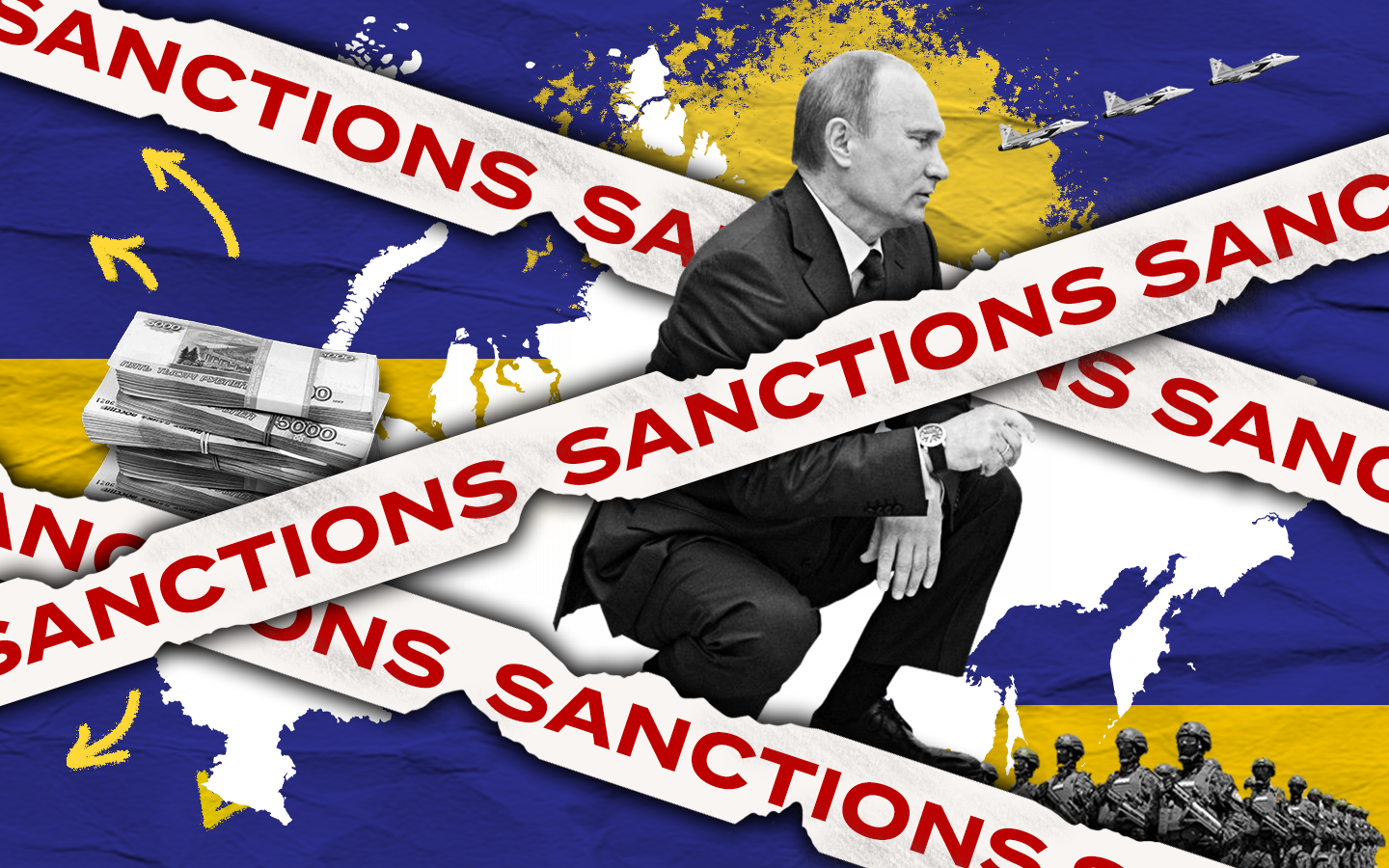The sanctions affect both the European and Russian economies, and their costs and successes are questionable. Economic analysts talked about the sanctions against Russia, financial reserves, and the US dollar’s hegemony. Conference coverage from Hype&Hyper.
Prominent Hungarian economists discussed the cost-benefit analysis of the war at the National University of Public Service in Budapest. Interesting numbers, shocking theories.
Does the Russian economy have reserves for several years?
Anton Bendarzsevszkij, foreign affairs expert, Director of Research at the Oeconomus Economic Research Foundation, believes the main question is whether the sanctions have an impact. Will Russia collapse? The expert noted that the sanctions had not crushed Moscow, as it has been preparing for an economic war and isolation for a decade. He pointed out that the Russian military has been modernized since 2008, preparing it for a potential conflict, and since 2014 the Kremlin also prepares for economic counterattacks. Russia essentially experienced economic sanctions after the annexation of Crimea in 2014, to which it responded in part with countersanctions. Since then, Russia has tested its financial sector with various stress scenarios, and they have built up reserve funds. Although some of these funds have been frozen by the Western allies, Moscow still has significant financial reserves.
„Sanctions work best in a democratic system, as their economic impact would cause the leadership to lose elections,” the expert said, pointing out that in an autocratic state, political goals come before everything else, including economic and trade objectives. „So, if there is no money, they will still divert it from elsewhere,” Bendarzsevszkij summed up the Russian’s method.
It is also important to note, he added, that the Russian economy has enough reserves to survive the next few years: „The Russian budget deficit in 2022 was $70 billion, but they have hundreds of billions of dollars in reserves that will keep the economy functioning for 3-4 years.” However, Bendarzsevszkij added that the most educated and skilled middle class had already emigrated, and the Western companies had also left, so the situation is far from ideal for the Kremlin. Moreover, Europe has begun to decouple from Russian energy sources, and energy independence from Moscow is achievable within a few years. But on the Russian side, transforming the capacities is much slower or virtually impossible.
Sanctions bleed dry slowly
Attila Szalay-Berzeviczy, banker, economist, and former chairman of the Budapest Stock Exchange, highlighted that the British applied the first modern sanctions against Germany in 1914. The Brits declared a naval blockade, to which Germany responded with a brutal submarine war. The economist explained that „it took 52 months that time for the economic sanctions to impact the fighting; 52 months were needed to break the hinterland.” So, Szalay-Berzeviczy believes the sanctions can work, but they bleed Russia dry very slowly. Nonetheless, there is a significant difference compared to 1914: we live in a globalized world now.
According to the banker, the war in Ukraine is the first intense armed conflict in which the economic and financial system has become a battlefield, so this is the time when economic sanctions are indeed being tested as weapons. „What works even though it hurts? And what is counterproductive? We will only be able to tell the answers after years,” he said, pointing out that Russia accounts for only 0.79 percent of global GDP while the Western arms supplier countries are much larger players with a 24 percent share. Russia was preparing for isolation; still, the rapid, unified implementation of sanctions surprised the Kremlin. Szalay-Berzeviczy explained that the West did not introduce these measures because they hoped the sanctions would cause Putin to fall or the Russians to drop their arms. The aim of the sanctions is to degrade the Russian economy and military potential, in addition to sending a clear message to all states and international actors. The economist stressed that sanctions are gradual as democracies are slow, and the pain threshold is slowly raised. Szalay-Berzeviczy believes the most painful sanctions are nowhere yet, as the real tragedy for Moscow would be a full exclusion from US dollar trade, a complete SWIFT ban, and imposing sanctions on Russia’s allies or on the abstaining countries.
„If these were to happen, the consequences for Russia would be immediate and painful, and the Kremlin would not be able to counterattack,” Szalay-Berzeviczy said, adding that Joe Biden’s visit to Kyiv has put the war in Ukraine to a completely new dimension. He concluded that the US wins all wars it gets really involved in, as 70 percent of all global money flows are denominated in US dollars. According to the economist, the US dollar is a stronger weapon for Washington than the US Army, and he believes the American currency’s dominance is unshakeable. Moreover, it is also not negligible that the US-led Anglo-Saxon coalition is present in all parts of the world as the globally most powerful economic bloc, and a war where these countries fight against each other will never happen. Finally, Szalay-Berzeviczy highlighted that the escalation of the war reached the point where there is a consensus to defeat Russia among Republicans and Democrats.
2023 will be worse for Russia than the previous years
According to András Deák, Ph.D., a senior research fellow at the Institute for Strategic and Defense Studies, the time has come for a cost-benefit analysis regarding the sanctions imposed during the war. On the European side, there are no giant costs except in one area: the energy market. The Russians have cut their gas supply which has also significantly increased the price of electricity, leading to GDP losses of 4-5%. The Balkans and Moldova were the worst hit, but by 2023 the market started to consolidate, and the sanctions’ cost will be lower for Europe this year. On the other side, we should look at the damage caused to Russia: the fall in GDP was noticeable, but there was an increase in revenue in the raw materials sector as Russia got more money for less production.
Deák said that „2023 will be worse for Russia because it will start to feel the oil sanctions’ impact on the real economy, though it is not known yet to what extent.” The expert added that the plight in Russia is quite complicated as the Russian oil industry is based on Western technology, especially in the field of refining. Western companies currently do not deliver to Russia, and they do not do maintenance either. Although it is possible for Moscow to return to post-Soviet technology, it would mean a colossal drawback and enormous costs. „An LNG terminal is fully based on Western technology, so they will not work either,” Deák said, pointing out that the sanctions entail that Moscow cannot sell oil given the current production figures.
Another interesting area is the automotive industry. Deák explained that „Russia’s automotive sector has collapsed entirely, falling by 43 percent, but it can also relatively quickly and effectively recover due to Chinese manufacturers and suppliers. He added that „Russians will be able to import small quantities of sanctioned products, the Soviet KGB methods can still work, but the amount will be maximum enough to supply the army, nothing else.” In conclusion, Deák noted that Russia is four times the size of Iran, a large economy in terms of purchasing power parity, and therefore it is difficult to separate it from the global economy, though not impossible.

Riga’s 135-year-old circus reopens

The 15th Budapest Architecture Film Festival starts this week!










